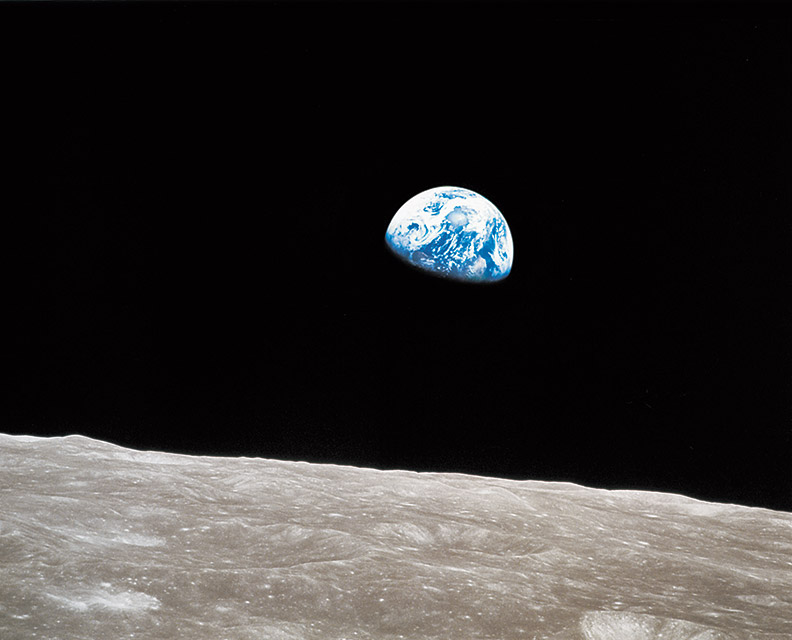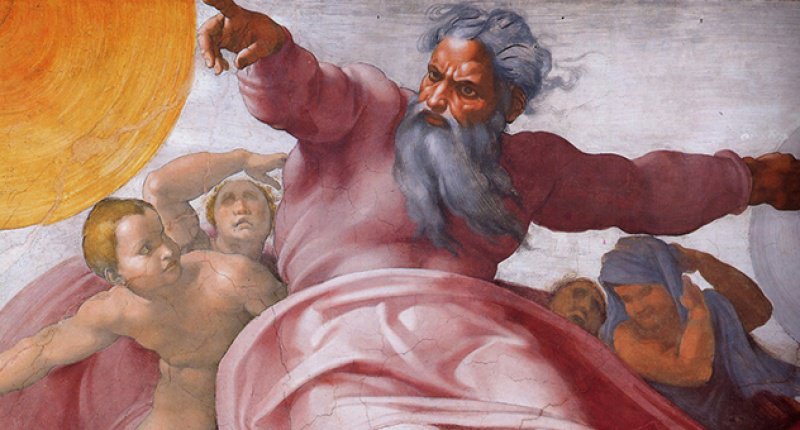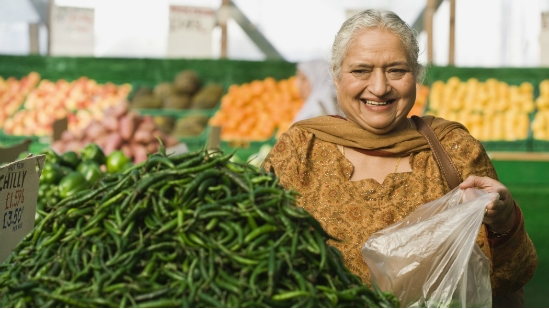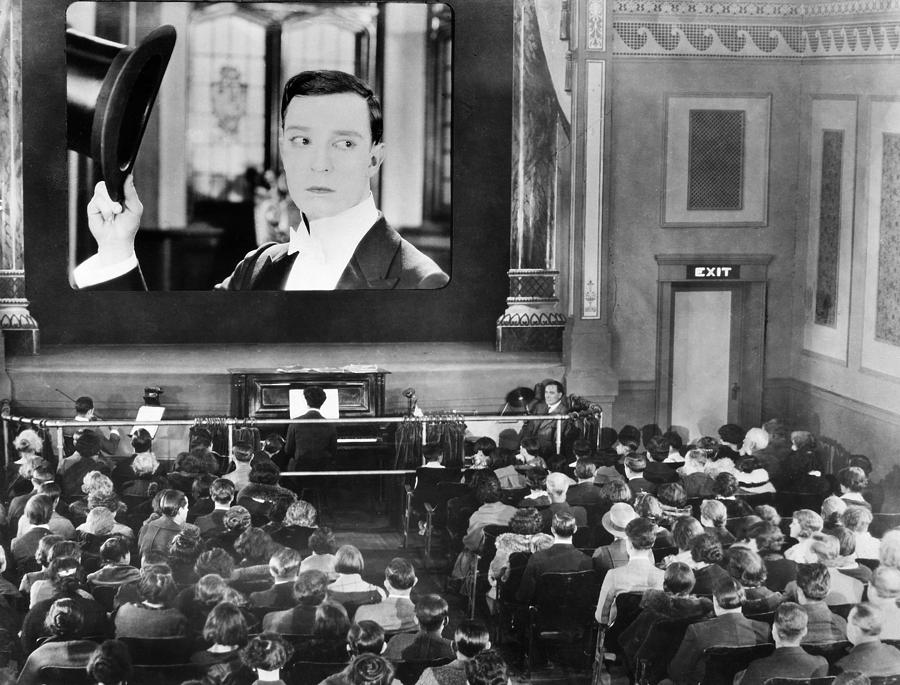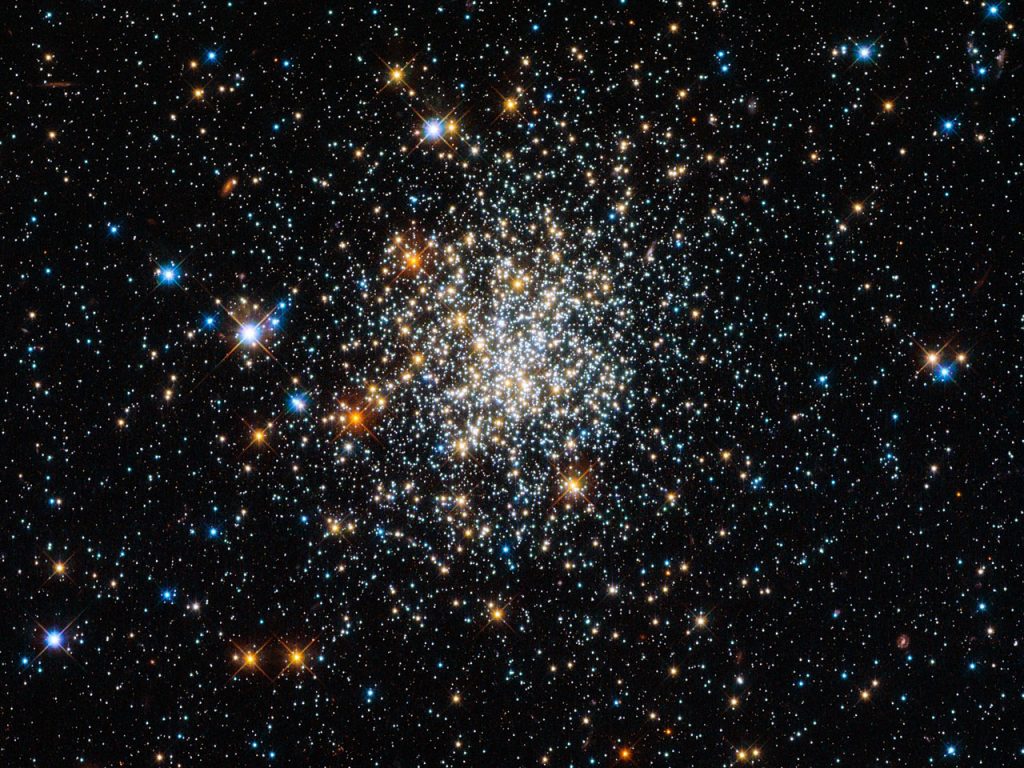The Frenzy of Being
My God, It’s Full of Stars (continued)
by Tracy K. Smith
3.
Perhaps the great error is believing we’re alone,
That the others have come and gone — a momentary blip —
When all along, space might be choc-full of traffic,
Bursting at the seams with energy we neither feel
Nor see, flush against us, living, dying, deciding,
Setting solid feet down on planets everywhere,
Bowing to the great stars that command, pitching stones
At whatever are their moons. They live wondering
If they are the only ones, knowing only the wish to know,
And the great black distance they — we — flicker in.
Maybe the dead know, their eyes widening at last,
Seeing the high beams of a million galaxies flick on
At twilight. Hearing the engines flare, the horns
Not letting up, the frenzy of being. I want it to be
One notch below bedlam, like a radio without a dial.
Wide open, so everything floods in at once.
And sealed tight, so nothing escapes. Not even time,
Which should curl in on itself and loop around like smoke.
So that I might be sitting now beside my father
As he raises a lit match to the bowl of his pipe
For the first time in the winter of 1959.
***
(to be continued)
Toward God-Knows-Where
My God, It’s Full of Stars (continued)
by Tracy K. Smith
2.
Charlton Heston is waiting to be let in. He asked once politely.
A second time with force from the diaphragm. The third time,
He did it like Moses: arms raised high, face an apocryphal white.
Shirt crisp, suit trim, he stoops a little coming in,
Then grows tall. He scans the room. He stands until I gesture,
Then he sits. Birds commence their evening chatter. Someone fires
Charcoals out below. He’ll take a whiskey if I have it. Water if I don’t.
I ask him to start from the beginning, but he goes only halfway back.
That was the future once, he says. Before the world went upside down.
Hero, surviver, God’s right hand man, I know he sees the blank
Surface of the moon where I see a language built from brick and bone.
He sits straight in his seat, takes a long, slow high-thespian breath,
Then lets it go. For all I know, I was the last true man on this earth, And:
May I smoke? The voices outside soften. Planes jet past heading off or back.
Someone cries that she does not want to go to bed. Footsteps overhead.
A fountain in the neighbor’s yard babbles to itself, and the night air
Lifts the sound indoors. It was another time, he says, picking up again.
We were pioneers. Will you fight to stay alive here, riding the earth
Toward God-knows-where? I think of Atlantis buried under ice, gone
One day from sight, the shore from which it rose now glacial and stark.
Our eyes adjust to the dark.
***
(to be continued)
Some Like to Imagine…
My God, It’s Full of Stars
by Tracy K. Smith
1.
We like to think of it as parallel to what we know,
Only bigger. One man against the authorities.
Or one man against a city of zombies. One man
Who is not, in fact, a man, sent to understand
The caravan of men now chasing him like red ants
Let loose down the pants of America. Man on the run.
Man with a ship to catch, a payload to drop,
This message going out to all of space… Though
Maybe it’s more like life below the sea: silent,
Buoyant, bizarrely benign. Relics
Of an outmoded design. Some like to image
A cosmic mother watching through a spray of stars,
Mouthing yes, yes as we toddle toward the light,
Biting her lip if we teeter at some ledge. Longing
To sweep us to her breast, she hopes for the best
While the father storms through adjacent rooms
Ranting with the force of Kingdom Come,
Not caring anymore what might snap us in its jaw.
Sometimes, what I see is a library in a rural community.
All the tall shelves in the big open room. And the pencils
In a cup at Circulation, gnawed on by the entire population.
The books have lived here all along, belonging
For weeks at a time to one or another in the brief sequence
Of family names, speaking (at night mostly) to a face,
A pair of eyes. The most remarkable lies.
***
(to be continued)
Excuse Me for Interrupting…
I Confess
by Alison Luterman
I stalked her
in the grocery store: her crown
of snowy braids held in place by a great silver clip,
her erect bearing, radiating tenderness,
watching
the way she placed yogurt and avocados in her
basket,
beaming peace like the North Star.
I wanted to ask, “What aisle did you find
your serenity in, do you know
how to be married for fifty years or how to live
alone,
excuse me for interrupting, but you seem to
posses
some knowledge that makes the earth turn and
burn on its axis–”
But we don’t request such things from strangers
nowadays. So I said, “I love your hair.”
Hunting.
Summer
by Tony Hoagland
The tourists are strolling down Alpine Street
hoping for a deal on hand-carved rocking chairs
or some bronze Kali Yuga earrings
from the local Yak Arts dealer.
It’s summer. No one needs therapy for now,
or a guide to the aesthetics of collage
–laughing as they walk past the acupuncture clinic,
and Orleans Fish and Chips,
then double back to the Omega store
to look more closely at those shoes.
People like to buy. They just do.
They like the green tissue paper.
They like extracting the card from its tight
prophylactic sheath, handing it over,
and getting it back.
They like to swing the bag when they stroll away.
They like to stash the box in the car.
A forty-year-old man stares at a wetsuit on the rack:
Is it too late in life to dress up like a seal and surf?
–as the beech tree in front of the courthouse suddenly
fluffs itself up and flutters,
and a woman with a henna rinse
holds a small glass vase up to the light
to see the tiny turquoise bubbles trapped inside.
As a child she felt a secret just inside her skin,
always on the brink of bursting out.
Now the secret is on the outside,
and she is hunting it.
Go On….
Getting Closer
by Mark Nepo
Go on, the voices say, part the veil.
Not with your hands. Hands will only
tangle the hours like a net. Get closer.
So you can part the veil with your breath.
The world keeps moving in on itself. It’s
what it does. Cobwebs. Opinions. Moss.
Worries. Dirt. Leaves. History. Go on. Put
them down and get real close. Open your
mouth and inhale all the way to the begin-
ning, which lives within us, not behind us.
Then wait. When something ordinary starts
to glow, we are getting closer. When the light
off the river paints the roots of that old willow
just as you pass, the world is telling you to
stop running. Forget what it means, just
stop running. When the moon makes you
finger the wet grass, the veil is parting.
When the knot you carry is loosened,
the veil is parting. When you can’t help
but say yes to all that is waiting, the
veil is parting.
Silence Taunts
The Universe: Original Motion Picture Soundtrack
by Tracy K. Smith
The first track still almost swings. High hat and
snare, even
A few bars of sax the stratosphere will singe-out
soon enough.
Synthesized strings. Then something like
cellophane
Breaking in as if snagged to a shoe. Crinkle and
drag. White noise,
Black noise. What must be voices bob up, then
drop, like metal shavings
In molasses. So much for us. So much for the
flags we bored
Into planets dry as chalk, for the tin cans we
filled with fire
And rode like cowboys into all we tried to tame.
Listen:
The dark we’ve only ever imagined now audible,
thrumming,
Marbled with static like grisly meat. A chorus of
engines churns.
Silence taunts: a dare. Everything that disap-
pears
Disappears as if returning somewhere.
All That We Live Blind To
In celebration of Tracy K. Smith, our new Poet Laureate!
The Largeness We Can’t See
by Tracy K. Smith
When our laughter skids across the floor
Like beads yanked from some girl’s throat
What waits where the laughter gathers?
And later, when our saw-toothed breaths
Lay us down on a bed of leaves, what feeds
With ceaseless focus on the leaves?
It’s solid, yet permeable, like a mood.
Like God, it has no face. Like lust,
It flickers on without a prick of guilt.
We move in and out of rooms, leaving
Our dust, our voices pooled on sills.
We hurry from door to door in a downpour
Of days. Old trees inch up, their trunks thick
With new rings. All that we see grows
Into the ground. And all we live blind to
Leans its deathless heft to our ears
and sings.
It Was Like This
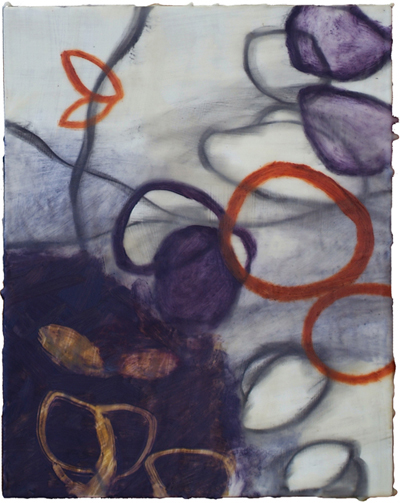 Tonight, at 9:30 pm St. Louis time, Pauletta’s family, friends and fellow sangha members will gather to acknowledge and bless her passing by chanting together. I can’t be there in body, but I will certainly be there in voice.
Tonight, at 9:30 pm St. Louis time, Pauletta’s family, friends and fellow sangha members will gather to acknowledge and bless her passing by chanting together. I can’t be there in body, but I will certainly be there in voice.
In the mean time, I offer:
It Was Like This: You Were Happy
by Jane Hirshfield
It was like this:
you were happy, then you were sad,
then happy again, then not.
It went on.
You were innocent or you were guilty.
Actions were taken, or not.
At times you spoke, at other times you were silent.
Mostly, it seems you were silent–what could you say?
Now it is almost over.
Like a lover, your life bends down and kisses your life.
It does this not in forgiveness–
between you, there is nothing to forgive–
but with the simple nod of a baker at the moment
he sees the bread is finished with transformation.
Eating, too, is a thing now only for others.
It doesn’t matter what they will make of you
or your days: they will be wrong,
they will miss the wrong woman, miss the wrong man,
all the stories they tell will be tales of their own invention.
Your story was this: you were happy, then you were sad,
you slept, you awakened.
Sometimes you ate roasted chestnuts,
sometimes persimmons.
***
(painting by Pauletta Chanco: Knowing When to Stop)
Always Ready to Burst Forth
Picnic, Lightning
by Billy Collins
My very photogenic mother died in a freak accident (picnic, lighting) when I was three.
— Lolita
It is possible to be struck by a meteor
or a single-engine plane
while reading a chair at home.
Safes drop from rooftops
and flatten the odd pedestrian
mostly within the panels of the comics,
but still, we know it is possible,
as well as the flash of summer lightning,
the thermos toppling over,
spilling out on the grass.
And we know the message
can be delivered from within.
The heart, no valentine,
decides to quite after lunch,
the power shut off like a switch,
or a tiny dark ship is unmoored
into the flow of the body’s rivers,
the brain a monastery,
defenseless on the shore.
This is what I think about
when I shovel compost
into a wheelbarrow,
and when I fill the long flower boxes,
then press into rows
the limp roots of red impatiens–
the instant hand of Death
always ready to burst forth
from the sleeve of his voluminous cloak.
Then the soil is full of marvels,
bits of leaf like flakes off a fresco,
red-brown pine needles, a beetle quick
to burrow back under the loam.
Then the wheelbarrow is a wilder blue,
the clouds a brighter white,
and all I hear is the rasp of the steel edge
against a round stone,
the small plants singing
with lifted faces, and the click
of the sundial
as one hour sweeps into the next.


